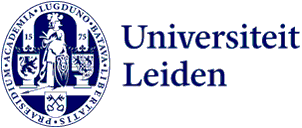
Alexander van Oudenhoven: 'Governance of Sustainability is something I would have wanted to study myself'
Alexander van Oudenhoven is the brand-new education director of the master's in Governance of Sustainability. The study has already entered its fourth year and Van Oudenhoven is very enthused. What makes this a special programme and what are his plans?
How are you feeling about your new position?
‘I have just finished my first month and it has gone by pretty quickly to be honest. I happened to be teaching for the past two months and just recently finished preparing another course that has started this week. Not that that’s a bad thing. I think it is very important that a director of education also teaches within their own programme.
Though, as the director of education, I am also involved in several day-to-day matters. Things like coordinating information days, managing study advisers and talking with the study association. I still have to see how that all works out in terms of time management, but fortunately I am not alone.'
What makes Governance of Sustainability such a special study?
‘All of our courses take place in The Hague, in collaboration with the Faculty of Governance and Global Affairs. Very convenient for me, because I live there, but also valuable for our programme. Because the direct demand for our expertise is centred in The Hague. This is where the ministries, planning agencies, but also consultancy firms are located.
'An ambitious programme attracts ambitious teachers '
Furthermore, Governance of Sustainability is one of the first so-called “transdisciplinary” programmes to have been approved. This means that within the study, we work together from different fields to create totally new ideas, new methods or even new fields. We transcend, as it were, the disciplines that our topics are based on.
To achieve this, every subject at Governance of Sustainability is taught by lecturers from two different faculties. So, you never have just one person in front of the class who only knows something about environment and then has to start explaining policy aspects, or vice versa. The fact that these lecturers “have to” work together ensures a diverse and unique curriculum. That's something I missed in my own study.'

If you had the chance, would you have chosen this study yourself?
'Funnily enough, I think about that quite often. Given my bachelor’s degree, I think I would have. I did environmental science, where you are taught a very strong foundation in, for example, mathematics, physics and hydrology. It did include some courses on policy, but I was never truly able to connect them that well with the natural science aspects of the course.
The interesting thing is that I discovered the subjects I now get to teach by accident. For example, at one point I had to defend some findings at the United Nations. If you haven't had any training for that, you could easily crash and burn. I now train students who, with their master's degree, have a much better grasp of that sort of thing than I had after my PhD. Maybe even after my postdoc.'
What's next for Governance of Sustainability?
'As COVID becomes a smaller and smaller obstacle, we want to focus more again on interacting with companies and the government. We do this, for example, through the so-called Sustainability Challenge, in which students in teams try to solve a sustainability of a real commissioner. That works a lot better in a physical setting than through a screen and webcam in your student house.
In recent years, it has been quite challenging for students to find the connection with the work field. I think it is important to better communicate the career outlook to students. Fortunately, thanks to the first generations of alumni, that picture is becoming increasingly clear. Now we can inform future students even better about their choice of study.'
Are you looking forward to the coming years?
'Enormously, Governance of Sustainability is a programme with many contact hours that demands a lot from its teachers. But an ambitious programme attracts ambitious lecturers and the dedication of the whole team is incredible. That is inspiring, contagious, and something I love to contribute to as education director.'
